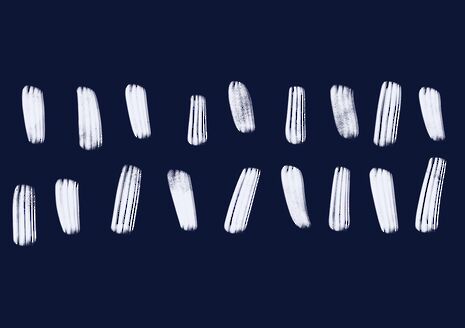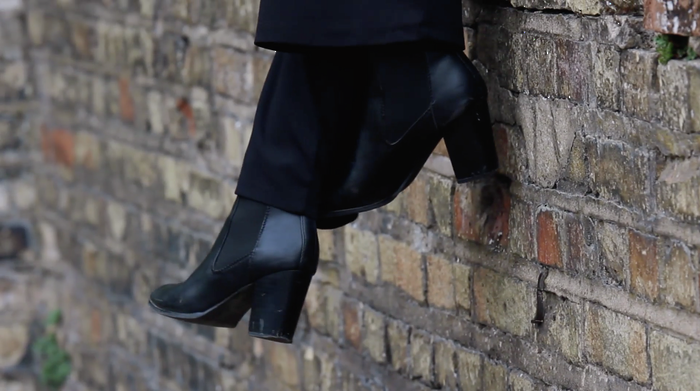How I stopped defining myself by a number on my bathroom scale
Counting became my obsession as I measured my self-esteem in relation to past versions of myself, writes Anna Feest

Content note: This article contains detailed discussion of eating disorders
Learning to count to ten is something every child does. Then comes adding, subtracting. Multiplication and division, fractions and decimals. Numbers permeate in an overwhelming range of things throughout our lives: hours in the day, population of cities, bus routes. Daily fruit and veg, grams of protein, carbohydrate intake.
Clothing sizes, waist circumference, weight on the scale.
Number of calories eaten.
Number of calories burnt.
I don’t know when my obsession with these numbers started, and I don’t want to pinpoint it. To do so would also outline a definite beginning to my eating disorder, and I don’t think there was one. All I know is, at one point I ate and behaved like any other teenager: intuitively, without thinking. Then, later, I didn’t. I started to weigh myself every morning (another ritual), and the number on the scales would often determine my mood for that day. I delighted in a drop, despaired at an increase. I knew it was completely irrational but still, I was obsessed, fixated by the steadily-decreasing numbers.
Bring your voice — write for Varsity Features
Interested in writing for Varsity’s features section? Join our Facebook group to see our latest commissions, or email our Features team with a 150-word pitch of your article idea.
The digits on the scale were controlled by more complex calculations, of course: of calories in versus calories burnt, the number of steps I’d taken or miles I’d run that day. I have wasted countless hours walking up and down supermarket aisles, indecisive, trying to work out what I should get and balancing out different numbers: portions of fruit, grams of protein, percentage of saturated fat. I could still tell you now how many calories are in something, from a salad to a chocolate bar, because although I might not think about it too often anymore, habits as ingrained as that are hard to break. And this was more than a habit: it was an obsession, something that I could totally control.
When confronted with anything — a family meal, a piece of birthday cake, less time to run than I had anticipated — which broke from my rigid routines and threatened the arbitrary quantities of everything I’d limited myself to, I became irritable and defensive. I’ll be the first to admit that I was not the easiest person to be around.
Eating disorders revolve around control, as I’ve been told countless times. Although I might not have realised it at the time, while going through A-Levels with a Cambridge offer looming over me and feeling my self-esteem plummet as I thought about what was expected of me, it started to feel like everything around me was spiralling out of control. The only thing I could control was what I ate, and that was dictated by the bathroom scale.
For as long as I can remember, my body image hasn’t been great: I’m tall, I feel big and clumsy, and so there was some ingrained belief that if I could just lose a little bit of weight then suddenly, somehow, everything would be solved. I ate less and moved more, and in order to measure my perceived ‘solution’, I turned to numbers on a scale.
By ignoring the scales, I’ve become more aware of how my body feels, not how it looks
Perhaps this is an extreme case, but we often let ourselves be dictated by numbers. Take clothes sizing, for example, where multiple measurements are condensed into one single value. It results in desperation for many to be a certain size, despite the fact with a completely different shape and structure would also be striving to fit the same pair of jeans. I remember the horror when old pairs of shorts, which I dreaded wearing anyway, would no longer fit over my post-puberty hips. We’re told constantly that our bodies should be a certain shape, a certain value, and it plays havoc with our body image.
Through obsessing over numbers, I had a constant, unavoidable and, above all, an easy comparison. My self-esteem was permanently defined in relation to others and previous versions of myself, and the numbers that ‘constituted’ them. It highlighted exactly where room for ‘improvement’ was hiding, and how much there was to be done.
We could, however, shift the focus around numbers. Numbers can be used to show potential, capabilities and achievements, often ones we overlook. It’s not a ground-breaking idea — from the #screwthescales hashtag to the ‘I Weigh’ movement, people are slowly starting to challenge the numbers which have come to define our physical beings. I haven’t weighed myself in over two years, and, although I know I’ve put on weight (thank goodness), I also know I can now run 10k a good fifteen minutes faster. I may not be (and should never) be a size 4 like some of my friends, but equally I’m almost 6ft, a number that in itself I’m proud of and which forms part of my identity. By ignoring the scales, I’ve become more aware of how my body feels, not looks, where my muscles are strongest and what my body is telling me.
My self-perception and body image have extended beyond uninformed quantities: I’m not constantly comparing myself to what I could or should be. It’s taken a while, but rather than relying on arbitrary and mostly meaningless measurements, my numbers help me to appreciate my capabilities, and with this confidence begin to accept my imperfections.
- If you have been affected by any of the content of this article, B-eat Eating disorders provides useful information and resources, as well as a helpline at 0808 801 0677. The Students’ Union Advice Service provides a more comprehensive list of support resources.
 Features / Should I stay or should I go? Cambridge students and alumni reflect on how their memories stay with them15 December 2025
Features / Should I stay or should I go? Cambridge students and alumni reflect on how their memories stay with them15 December 2025 News / Cambridge study finds students learn better with notes than AI13 December 2025
News / Cambridge study finds students learn better with notes than AI13 December 2025 News / Dons warn PM about Vet School closure16 December 2025
News / Dons warn PM about Vet School closure16 December 2025 News / News In Brief: Michaelmas marriages, monogamous mammals, and messaging manipulation15 December 2025
News / News In Brief: Michaelmas marriages, monogamous mammals, and messaging manipulation15 December 2025 Comment / The magic of an eight-week term15 December 2025
Comment / The magic of an eight-week term15 December 2025









